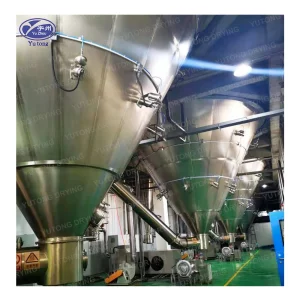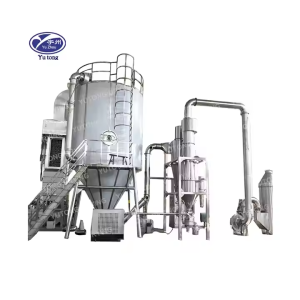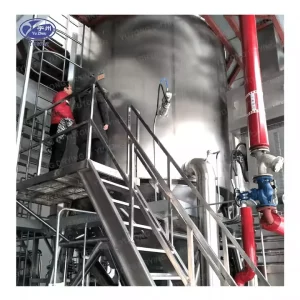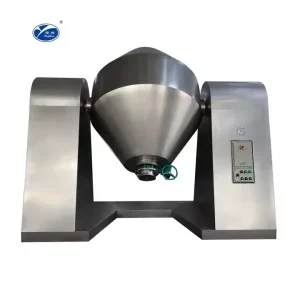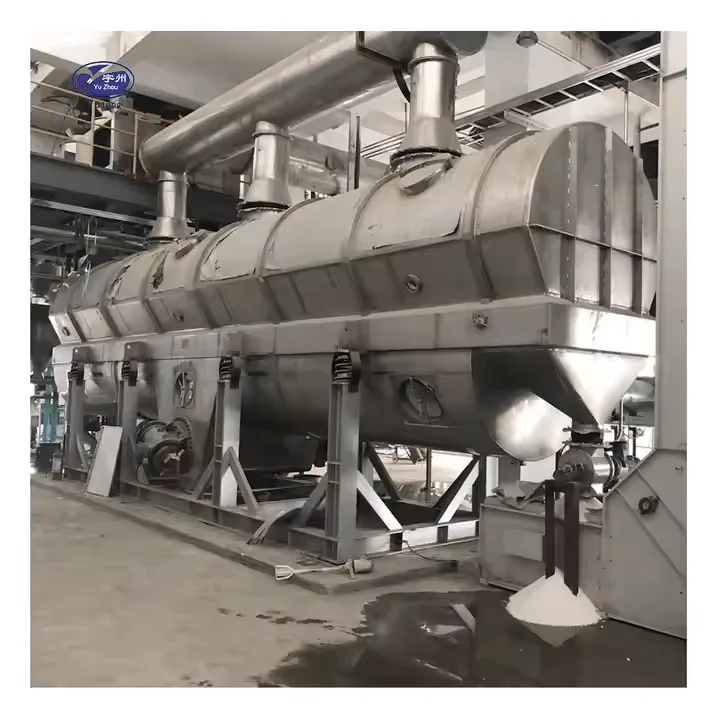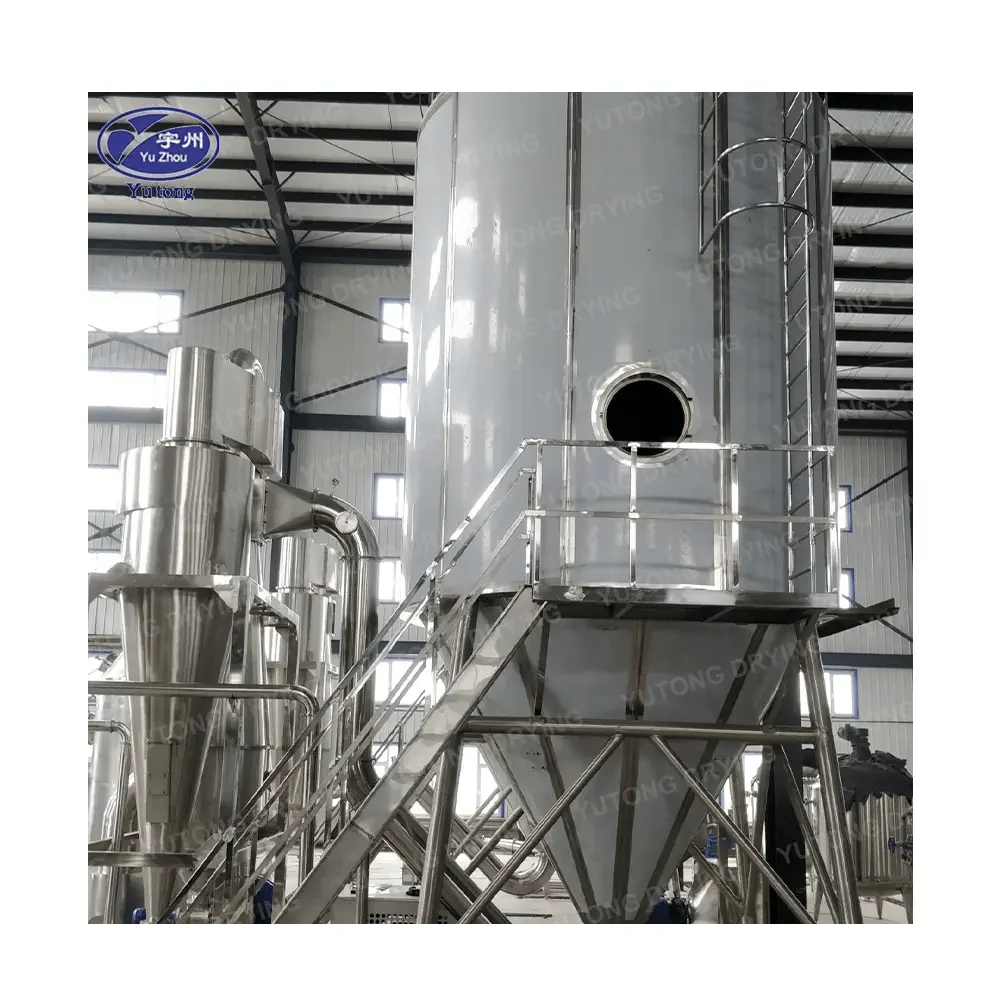In today’s fast-paced industrial world, efficient drying systems are crucial for maintaining product quality and optimizing production processes. Among the various drying technologies available, fluid bed dryers stand out due to their versatility and efficiency. This article explores the numerous applications of fluid bed dryers, focusing on their role in various industries, and highlights why they are a preferred choice for efficient drying.
What is a Fluid Bed Dryer?
A fluid bed dryer is an equipment used to reduce the moisture content of powders and granules. The process involves suspending particles in a stream of air, which causes the particles to behave like a fluid. This fluidization enhances the drying process by increasing the surface area exposed to the drying medium. Fluid bed dryers are known for their ability to provide uniform drying, making them ideal for heat-sensitive materials.
How Does a Fluid Bed Dryer Work?
In a fluid bed dryer, air is introduced at the bottom of the equipment, creating a fluid-like state for the particles. As the particles become suspended, they come into contact with the hot air, leading to efficient drying. This method ensures that each particle receives equal exposure to the drying medium, resulting in consistent moisture reduction across the batch.
Applications of Fluid Bed Dryers
Fluid bed dryers are used in a wide range of industries due to their adaptability and efficiency. Here are some key sectors where these dryers play a vital role:
Pharmaceutical Industry
The pharmaceutical industry requires precise control over the drying process to ensure the stability and efficacy of active ingredients. Fluid bed dryers are commonly used for drying granulated products, such as tablets and capsules. Their ability to provide uniform drying ensures consistent product quality and prevents degradation of sensitive components.
Food Industry
In the food industry, fluid bed dryers are employed to dry a variety of products, including cereals, spices, and coffee. The gentle drying process preserves the flavor, color, and nutritional value of the food. Additionally, fluid bed drying helps in maintaining the free-flowing characteristics of powders, which is essential for packaging and storage.
Chemical Industry
The chemical industry benefits from fluid bed dryers in the production of fine chemicals and powders. These dryers are ideal for drying materials that are sensitive to heat and require precise moisture control. Fluid bed dryers also facilitate the removal of solvents from chemical compounds, ensuring the final product meets the desired specifications.
Mineral and Metallurgical Industries
Fluid bed dryers are utilized in the mineral and metallurgical industries for drying ores, concentrates, and other raw materials. The efficient drying process helps in reducing transportation costs and improving the handling of bulk materials. Additionally, fluid bed drying contributes to the overall efficiency of mineral processing operations.
Biotechnology and Agrochemical Sectors
In biotechnology and agrochemical industries, fluid bed dryers are used for drying enzymes, fertilizers, and pesticides. The controlled drying environment minimizes the risk of product degradation, ensuring the bioactivity and effectiveness of these substances. Fluid bed dryers also enable the production of uniform granules, which are easier to handle and apply.
Advantages of Fluid Bed Dryers
Fluid bed dryers offer several advantages over traditional drying methods, making them a preferred choice in various industries:
Efficiency
Fluid bed dryers provide rapid and uniform drying, reducing drying times and increasing production efficiency. The fluidization process ensures that each particle is evenly exposed to the drying medium, resulting in consistent moisture reduction.
Energy Efficiency
The design of fluid bed dryers allows for optimal energy utilization. The hot air used for drying is efficiently circulated, minimizing energy consumption and reducing operating costs. This makes fluid bed dryers an environmentally friendly choice for industrial drying applications.
Versatility
Fluid bed dryers can be customized to meet the specific requirements of different industries. They can handle a wide range of materials, from heat-sensitive pharmaceuticals to robust minerals. The ability to adjust drying parameters ensures flexibility in processing various products.
Improved Product Quality
The gentle drying process of fluid bed dryers preserves the integrity and quality of the final product. The uniform drying prevents hotspots and degradation, resulting in a high-quality output. This is particularly important in industries where product quality is critical, such as pharmaceuticals and food.
Scalability
Fluid bed dryers are available in various sizes, making them suitable for both small-scale and large-scale production. This scalability allows industries to choose the appropriate equipment based on their production needs and budget constraints.
Conclusion
by nilufar nattaq (https://unsplash.com/@nillufar)
Fluid bed dryers are an essential component in modern industrial drying processes. Their versatility, efficiency, and ability to maintain product quality make them a preferred choice across various industries. Whether it’s drying pharmaceuticals, food products, chemicals, or minerals, fluid bed dryers offer a reliable and efficient solution. As industries continue to evolve, the demand for efficient drying systems like fluid bed dryers is expected to grow, further solidifying their role in enhancing production processes and product quality.




